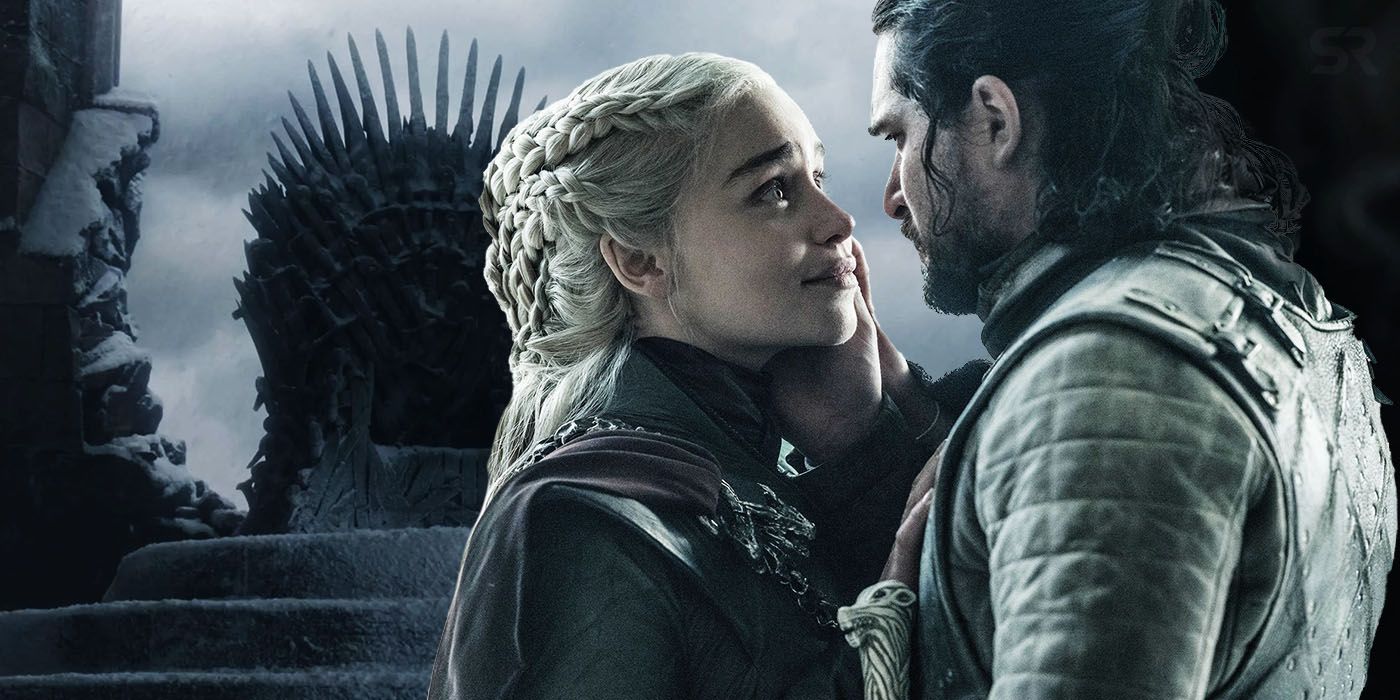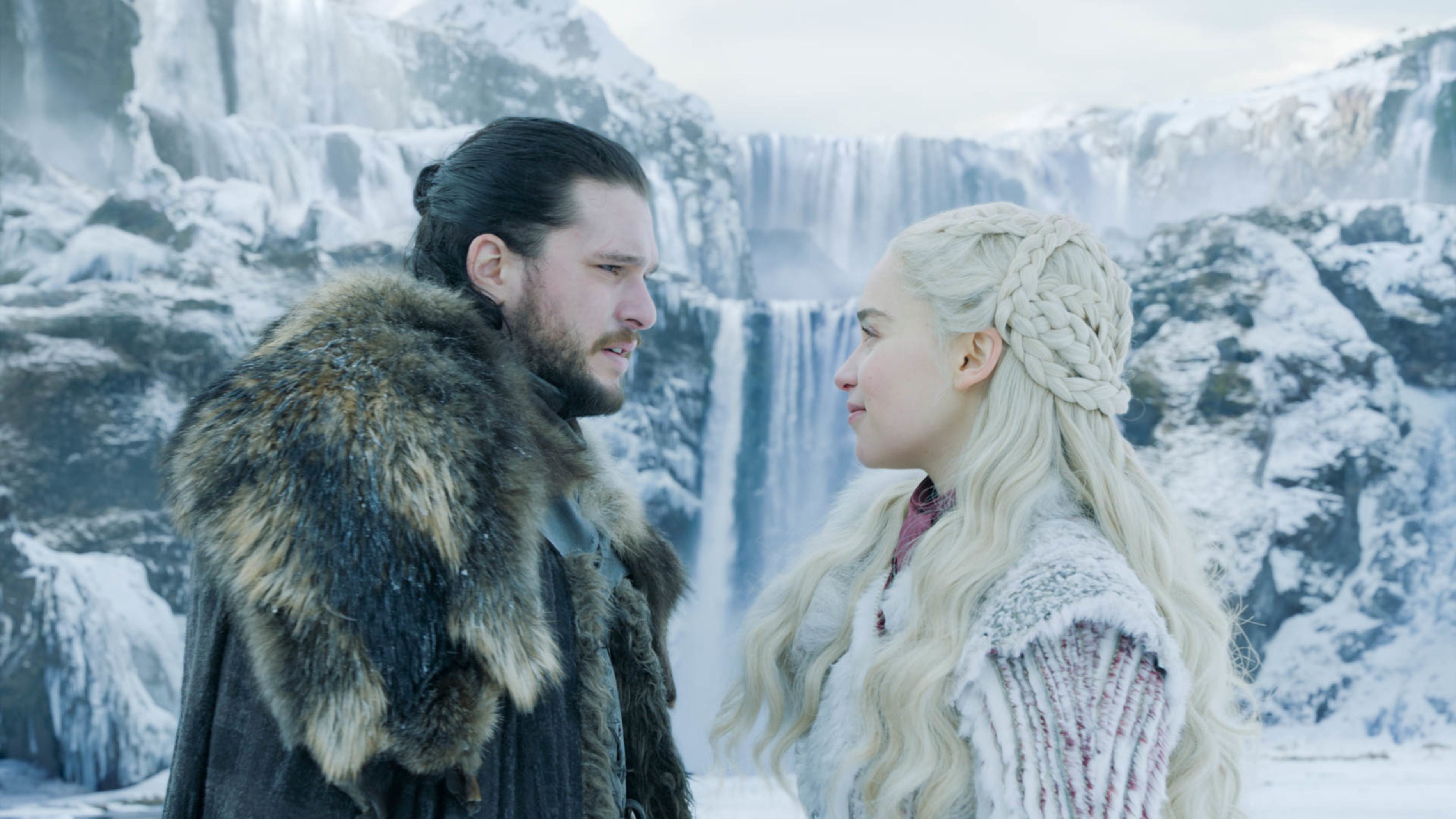Game of Thrones has become an iconic series in television history, but its conclusion sparked heated debates and divided opinions across the globe. When the final episode aired in May 2019, viewers experienced a whirlwind of emotions—some found closure, while others were left deeply dissatisfied. This epic saga, which captivated audiences for eight seasons, left many questions unanswered and ignited numerous controversies. So, why did the ending generate such intense reactions?
As one of the most ambitious and expansive fantasy series ever produced, Game of Thrones set sky-high expectations. With its intricate plotlines, multidimensional characters, and shocking twists, the show quickly became a cultural phenomenon. However, the final season, especially the last episode, faced criticism for its pacing, character development, and the resolution of major story arcs. This article explores the reasons behind the controversy, providing a thorough analysis of the ending and its implications.
Even amidst the backlash, it's crucial to examine the broader context of the series and the creative decisions made by its writers and producers. By analyzing the themes, character arcs, and narrative structure, we can better understand why the ending unfolded as it did. Regardless of whether you loved or hated it, the conclusion of Game of Thrones remains a pivotal moment in television history, sparking ongoing discussions.
Read also:Corbin Bleu From Disney Star To Versatile Entertainer
Table of Contents
- Exploring the Controversy Surrounding the Finale
- Key Characters and Their Fates
- An In-Depth Look at Season Eight
- Narrative Choices and Their Impact
- Themes Explored in the Ending
- Fan Reactions and Criticism
- The Creators' Perspective
- Cultural Impact of the Finale
- Long-Term Significance of the Series
- Conclusion: Reflecting on the Series' Legacy
Exploring the Controversy Surrounding the Finale
When the final episode of Game of Thrones aired, it instantly became the focal point for millions of fans worldwide. Over the years, the series had cultivated a devoted following due to its gripping storyline and unforgettable characters. However, the conclusion failed to meet the expectations of many viewers, leading to widespread criticism and debate.
One of the primary reasons for the controversy was the rushed pacing of the final season. Many fans believed that key storylines were resolved too hastily, leaving little room for character development or emotional depth. The abrupt changes in character behavior, particularly Daenerys Targaryen's descent into madness, were seen as inconsistent with her established personality.
Moreover, the resolution of major conflicts, such as Bran Stark's ascension to the Iron Throne, left some viewers feeling unsatisfied. Critics argued that the ending lacked closure, leaving important questions unanswered. Despite these criticisms, the finale remains a defining moment in television history, sparking ongoing discussions about storytelling in modern media.
Key Characters and Their Fates
Daenerys Targaryen: The Tragic Fall of a Visionary Leader
Daenerys Targaryen, once revered as the Mother of Dragons, became one of the most polarizing characters in the series' finale. Her transformation from a liberator to a tyrant was a central theme in the final season. Critics argued that her descent into madness was hurried and lacked sufficient buildup. However, the show's creators defended this choice, stating that her tragic fall was always part of their plan.
Key moments in her storyline, such as the fiery destruction of King's Landing and her eventual death at the hands of Jon Snow, remain some of the most debated aspects of the series. These events raised profound questions about power, morality, and the cost of ambition.
Bran Stark: The Unexpected King and His Role in the Future
Bran Stark's rise to the Iron Throne was another controversial decision. Many fans were surprised by this outcome, as Bran had always been portrayed as a passive and introspective character. His selection as king, based on his ability to remember everything, was seen by some as a convenient plot device rather than a logical conclusion to his character arc.
Read also:Hdhub4u Bollywood Hindi Your Ultimate Guide To Bollywood Movies
Despite the criticism, Bran's role as the Three-Eyed Raven added complexity to his character. His knowledge of the past and future made him a unique choice for leadership, though it left some viewers feeling disconnected from the emotional stakes of the story.
An In-Depth Look at Season Eight
Season eight of Game of Thrones was both eagerly anticipated and intensely scrutinized by fans. With only six episodes, the final season had to tie up numerous storylines and resolve major conflicts. However, the limited runtime and fast-paced storytelling led to several issues that contributed to the controversy.
Some of the main criticisms included:
- Rushed pacing: Important plot points were resolved too quickly, leaving little time for character development.
- Inconsistent character behavior: Several characters, including Daenerys and Tyrion, exhibited actions that seemed out of character.
- Unresolved subplots: Some storylines, such as the fate of the Night King and the Stark siblings, were left with incomplete resolutions.
Despite these issues, season eight featured memorable moments, such as the epic Battle of Winterfell and the reunions of long-lost characters. These elements helped maintain viewer engagement, even as the series approached its conclusion.
Narrative Choices and Their Impact
The Role of Symbolism in the Final Season
Symbolism played a crucial role in the narrative decisions made in the final season. For instance, the destruction of King's Landing symbolized the destructive nature of power and the dangers of unchecked ambition. Similarly, Bran's ascension to the throne represented the importance of knowledge and wisdom in leadership.
However, some viewers felt that these symbolic elements overshadowed the emotional depth of the story. The focus on broader themes sometimes detracted from the personal journeys of the characters, leaving fans feeling disconnected from their favorite heroes.
Character Development: The Good, the Bad, and the Complex
Character development was a significant point of contention in the final season. While some characters, such as Arya Stark and Sansa Stark, received satisfying arcs, others, like Daenerys and Tyrion, faced criticism for their inconsistent behavior. The show's creators explained that these choices were deliberate, aiming to reflect the complexities of human nature and the unpredictability of power.
Despite the criticisms, the series maintained its reputation for bold storytelling and unexpected twists. The final season continued this tradition, challenging viewers to reconsider their assumptions about the characters and the world they inhabited.
Themes Explored in the Ending
The conclusion of Game of Thrones explored several profound themes, including the nature of power, the cost of ambition, and the cycle of violence. These themes were woven throughout the series, culminating in the final episodes. By examining these themes, we can gain a deeper understanding of the creators' intentions and the messages they hoped to convey.
Key themes included:
- The corrupting influence of power: Daenerys' descent into tyranny served as a cautionary tale about the dangers of absolute power.
- The importance of community: The Stark siblings' decision to remain in the North highlighted the value of unity and cooperation.
- The search for meaning: Bran's role as the Three-Eyed Raven reflected the quest for knowledge and understanding in a chaotic world.
These themes resonated with viewers on a deeper level, sparking discussions about leadership, morality, and the human condition.
Fan Reactions and Criticism
The finale of Game of Thrones elicited a wide range of reactions from fans worldwide. Some viewers praised the conclusion for its bold storytelling and willingness to take risks, while others expressed disappointment and frustration. Social media platforms were inundated with opinions as fans debated the merits and flaws of the ending.
Common criticisms included:
- Poor pacing: Many fans felt that the final season rushed through important plot points, leaving key storylines unresolved.
- Inconsistent character behavior: Characters like Daenerys and Tyrion exhibited actions that seemed out of character, leading to confusion and dissatisfaction.
- Unsatisfying resolutions: The fates of major characters, such as Jon Snow and Sansa Stark, were seen as lacking emotional depth.
Despite the backlash, the series' finale remains a topic of conversation, underscoring the enduring impact of Game of Thrones on popular culture.
The Creators' Perspective
The creators of Game of Thrones, David Benioff and D.B. Weiss, have discussed their vision for the series and the choices they made in the final season. They explained that the ending was always part of their plan, emphasizing the importance of staying true to the story they wanted to tell.
In interviews, Benioff and Weiss addressed the challenges of adapting George R.R. Martin's novels for television. They acknowledged the pressure of meeting fan expectations while maintaining creative control. The creators defended their choices, stating that the controversial elements were intentional and designed to provoke thought and discussion.
While some fans remain unsatisfied with the conclusion, the creators' perspective offers valuable insights into the creative process behind one of the most ambitious television series of all time.
Cultural Impact of the Ending
The conclusion of Game of Thrones had a significant impact on popular culture, sparking discussions about storytelling, character development, and the role of media in shaping public opinion. The series' finale became a cultural event, drawing millions of viewers and generating widespread debate.
One of the key takeaways from the ending is the importance of audience engagement. The controversy surrounding the finale highlighted the power of fan participation in shaping the narrative of a story. Social media platforms played a crucial role in amplifying fan voices, creating a global conversation about the series and its conclusion.
Furthermore, the ending of Game of Thrones demonstrated the evolving nature of television storytelling. As audiences become more sophisticated and demanding, creators face increasing pressure to deliver satisfying conclusions to complex narratives. The series' finale serves as a case study in the challenges and opportunities of modern media production.
Long-Term Significance of the Series
In the years since its conclusion, Game of Thrones continues to influence the television industry and popular culture. The series' legacy extends beyond its controversial ending, encompassing its groundbreaking storytelling, memorable characters, and stunning visuals. As one of the most ambitious and successful television series of all time, Game of Thrones has set a new standard for fantasy storytelling.
The enduring significance of the series lies in its ability to provoke thought and discussion. Whether fans loved or hated the ending, the series remains a cultural touchstone that continues to inspire and challenge audiences. Its impact on the television landscape is undeniable, paving the way for future projects and influencing the next generation of storytellers.
Conclusion: Reflecting on the Series' Legacy
Reflecting on the conclusion of Game of Thrones, it becomes evident that the series remains a landmark achievement in television history. Despite the controversy surrounding its ending, the show's impact on popular culture and the television industry is undeniable. The creators' bold choices and willingness to take risks have left a lasting impression on audiences worldwide.
As we look back on the series, it's important to appreciate the broader context of its storytelling. The themes, characters, and narrative choices made in the final season continue to spark discussion and debate, highlighting the enduring relevance of Game of Thrones. Whether you loved the ending or found it disappointing, the series remains a testament to the power of storytelling and the ability of media to shape our understanding of the world.
We invite you to join the conversation by sharing your thoughts in the comments below. What did you think of the ending? How do you believe it will be remembered in the years to come? Don't forget to explore our other articles for more insights into the world of Game of Thrones and beyond.


